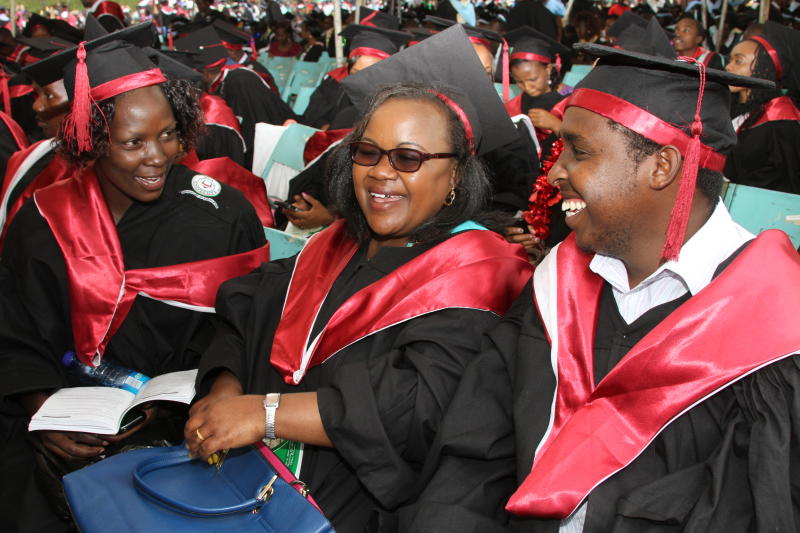×
The Standard e-Paper
Home To Bold Columnists

Bachelors of Science in Communication and Journalism graduates during their graduation ceremony at Moi University-Main Campus in Eldoret on October 3, 2018. [Peter Ochieng,
In my various interactions with journalism graduates, the common complaint has been the numerous hurdles they face trying to access work-related skills in media organisations.